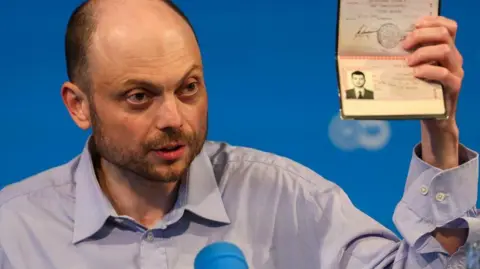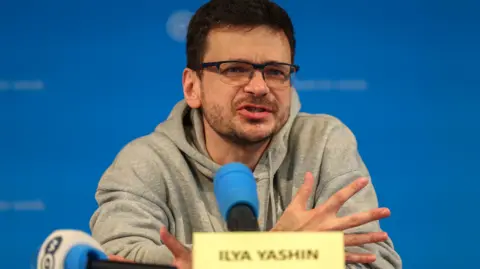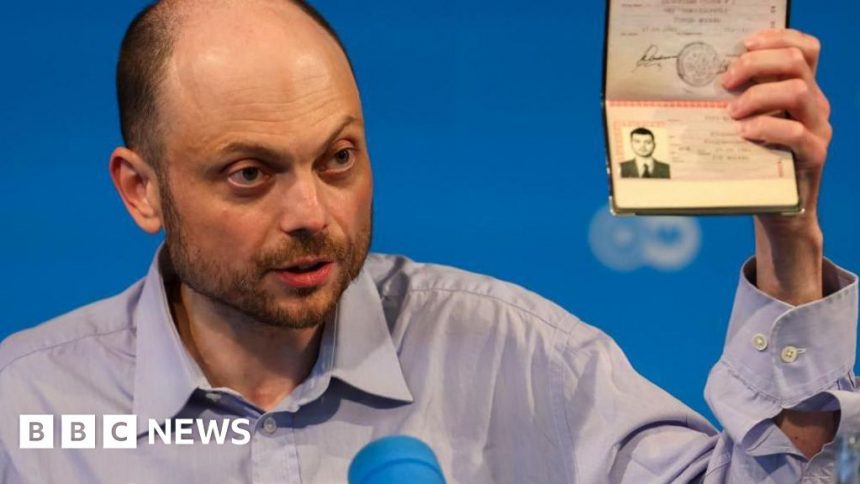Freed Russian dissidents refused to sign plea for mercy from Putin
 EPA
EPATwo Russian dissidents released in a prisoner swap on Thursday said they refused to sign a petition for mercy to be sent to Russian President Vladimir Putin as requested by prison officials.
During a news conference in Germany, Vladimir Kara-Murza and Ilya Yashin said they did not admit guilt or give Russian officials their consent to be removed, and vowed to return home one day.
Mr Kara-Murza said the deal had saved “16 human lives” and that he had been convinced he would die in prison.
He added that many Russians were “opposed to Putin’s war in Ukraine”.
The two men were released as part of the exchange, which saw 24 people jailed in seven different countries exchanged.
Those released by Russia included US journalist Evan Gerschkovich and former Marine Paul Whelan.
The Russians released by Western nations included convicted assassin Vadim Krasikov, who had been serving a life sentence in Germany for killing a Georgian-born Chechen dissident in a Berlin park.
On Friday, Mr Kara-Murza and Mr Yashin, along with another dissident Andrei Pivovarov, pledged to continue working towards a “free” Russia and advocating on behalf of political prisoners still being held there.
Russian rights group Memorial says hundreds of political prisoners are currently held in prison.
“I did not believe I would ever see my wife again. I did not believe I’d ever see my family again and this feels really surreal, this feels like a film,” said Mr Kara-Murza.
 EPA
EPAHowever the exchange was a “drop in the ocean because so many innocent people who’ve never committed a crime in their life are being held in torturous conditions” in Russia, he added.
The freed dissidents also paid tribute to Putin critic Alexei Navalny, who died in prison on February.
The White House said on Thursday that Mr Navalny had been due to be included in a deal.
Mr Yashin said: “The fact that Alexei Navalny is not with us is a crime committed by Putin, who bears direct responsibility for his murder.”
Mr Kara-Murza said he wanted “to remind people in democratic countries that Russia and Putin are not the same thing”.








